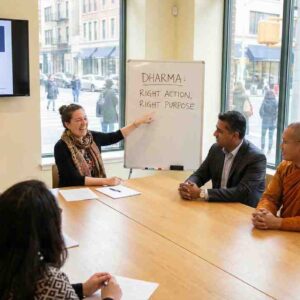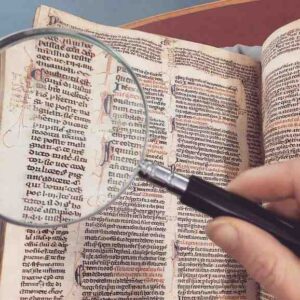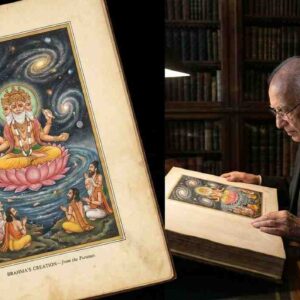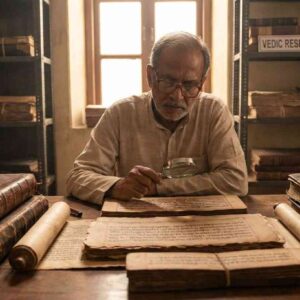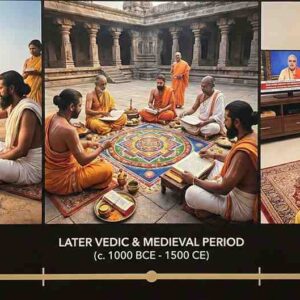A State Rooted in Faith and Emerging Rationality
Uttar Pradesh (UP), a land of spiritual landmarks and historical significance, stands as a microcosm of India’s eternal tussle between faith and rationality. From the sacred ghats of Varanasi to the bustling campuses of modern universities, the state embodies a unique intersection where ancient beliefs coexist with contemporary scientific thought. However, this delicate balance is increasingly tested as political, social, and cultural narratives bring these two ideologies into sharper contrast.
Faith as a Foundation of Uttar Pradesh’s Identity
1. Religious and Cultural Significance
- Sacred Cities:
- Varanasi, Ayodhya, and Mathura are not only spiritual epicenters but also symbols of India’s ancient cultural heritage.
- Pilgrimage activities generate billions annually, underpinning the state’s economy and identity (Tourism Department, Uttar Pradesh).
- Festivals and Traditions:
- From the grand celebrations of Kumbh Mela to the nuanced practices of Muharram in Lucknow, UP’s festivals reflect the deep faith of its residents.
2. The Rise of Politicized Faith
- Religious Projects:
- The construction of the Ram Mandir in Ayodhya and redevelopment of the Kashi Vishwanath Corridor have become symbols of cultural pride, but they also serve as political tools for consolidating vote banks.
- Impact:
- While such projects foster religious pride, critics argue that they overshadow pressing developmental concerns like education and healthcare.
Rationality on the Rise
1. Educational Growth
- Higher Education:
- Institutes like IIT Kanpur, Banaras Hindu University (BHU), and Aligarh Muslim University (AMU) have made UP a hub for scientific research and academic excellence.
- Digital Expansion:
- Government initiatives, such as the Digital India campaign and e-learning programs, have encouraged rational thinking among younger generations.
2. Scientific Contributions
- Agriculture:
- The state’s agricultural universities are spearheading research in sustainable farming techniques.
- Health:
- COVID-19 management saw a rise in reliance on data-driven policies and vaccination drives, demonstrating the role of rational governance.
The Conflict Between Faith and Rationality
1. Politicization of Beliefs
- Faith as a Political Tool:
- Political rhetoric often appeals to religious sentiments, marginalizing rational discourse in policymaking.
- Example: Election slogans emphasizing religious identity can divert attention from issues like employment and education.
2. Resistance to Change
- Superstition vs. Science:
- Practices like child marriage or resistance to vaccination in rural areas highlight the challenges of promoting scientific reasoning over traditional beliefs.
3. The Role of Education
- Opportunities and Gaps:
- While urban centers benefit from quality education fostering critical thinking, rural areas often lack access, perpetuating traditional practices.
4. Balancing Development and Tradition
- Infrastructure Projects:
- Debates over projects like expressways cutting through sacred groves reveal the tension between economic progress and cultural preservation.
Finding a Middle Path
1. Leveraging Faith for Progress
- Use cultural festivals and spiritual tourism as platforms to promote sustainable development and scientific awareness.
2. Promoting Rational Education
- Expand STEM education initiatives in rural areas, ensuring access to quality resources that encourage critical thinking.
3. Encouraging Dialogue
- Facilitate conversations between faith leaders and scientific experts to address societal challenges collaboratively.
4. Inclusive Policy-Making
- Frame policies that respect faith while promoting evidence-based approaches, particularly in health, environment, and education.
The Way Forward
Signs of Harmony
- Spiritual Sustainability:
- Initiatives like Namami Gange blend faith-driven environmentalism with scientific river rejuvenation projects.
- Education Initiatives:
- Programs encouraging higher enrollment in rural schools reflect a growing acceptance of rational approaches alongside traditional beliefs.
Challenges
- Polarized Narratives:
- Political narratives continue to pit faith against rationality, limiting the space for balanced dialogue.
- Structural Inequities:
- Unequal access to education and healthcare exacerbates the gap between faith-driven and evidence-based worldviews.
Conclusion: A Delicate Balance
Uttar Pradesh’s identity as a state rooted in faith and aspiring toward rationality presents a unique opportunity to model coexistence. While faith shapes its cultural and spiritual core, rationality is essential for addressing modern challenges like education, healthcare, and environmental sustainability.
The key lies in fostering a balanced narrative that respects tradition while embracing progress. By bridging these two seemingly opposing forces, UP can pave the way for a society that values both its ancient heritage and its future potential.






